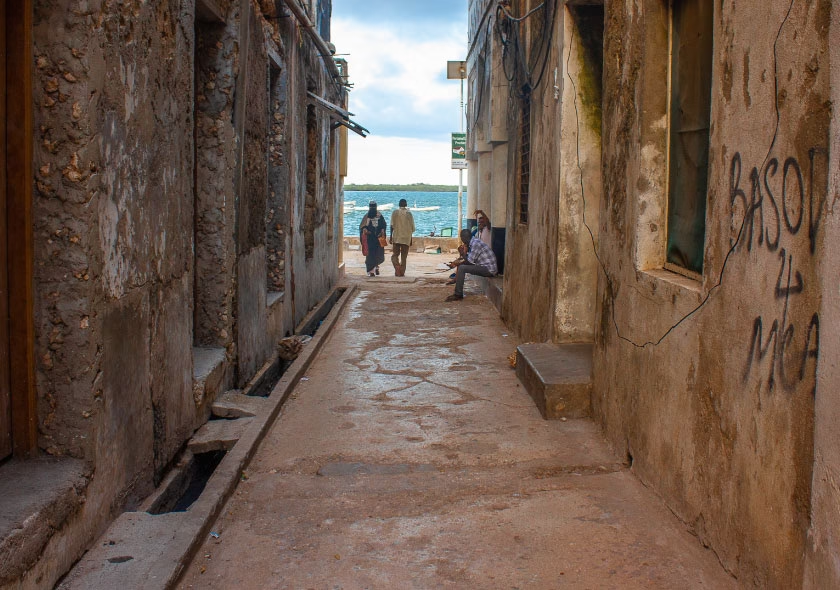Cultural Immersion in Lamu Island

Cultural Immersion in Lamu Island
Your Ultimate Guide to Kenya’s Oldest Living Town
Lamu Island, located off the northern coast of Kenya, is a quiet, mystical destination where time seems to stand still. With no cars, centuries-old Swahili architecture, and ancient alleyways where donkeys outnumber people, Lamu feels like a living museum of East African coastal life. This island town, founded in the 14th century, offers not just beautiful beaches and dhow sails, but a deep dive into the heart of Swahili culture.
Designated a UNESCO World Heritage Site, Lamu Old Town is the best-preserved Swahili settlement in East Africa. Beyond the historic coral stone buildings and intricately carved wooden doors, the town pulses with vibrant traditions — from call to prayer echoing at dawn to late-afternoon Swahili tea sessions. Whether you’re savoring local dishes, visiting a traditional dhow workshop, or taking part in a local festival, Lamu invites you to connect, reflect, and slow down.
Why Visit Lamu Island?
Authentic Swahili Heritage
Lamu is one of the few places where Swahili culture remains deeply rooted and unspoiled. The fusion of African, Arab, Persian, and Indian influences is visible in everything — from architecture and language to cuisine and clothing.
Car-Free Tranquility
With no vehicles allowed, the island maintains a peaceful, unhurried pace. Explore on foot or by donkey — the primary local transport — or hop on a traditional dhow for a scenic ride along the coast.
Historic Lamu Old Town
Wander through narrow alleyways lined with coral-stone buildings and wooden balconies. Key landmarks include Lamu Fort, Riyadha Mosque, and the Lamu Museum, where you’ll gain insight into centuries of trade and Islamic scholarship.
Rich Festivals & Traditions
From the Lamu Cultural Festival (celebrating Swahili music, poetry, and art) to the Maulidi Festival (marking the Prophet Muhammad’s birthday), visitors have the rare chance to participate in real, living heritage.
Flavorful Swahili Cuisine
Taste traditional dishes like biryani, mahamri, and seafood curries infused with cloves, cardamom, and coconut milk. Local chefs often offer informal cooking classes to learn the art of Swahili food.
Serene Shela Beach
Just a short walk or dhow ride from town, Shela offers miles of untouched beach, perfect for peaceful walks, yoga sessions, or simply watching the waves roll in.
Best Time to Visit Lamu
-
December – March: Dry season with clear skies and great beach weather.
-
July – October: Cooler temperatures and calm sea — ideal for sightseeing.
-
November & April – May: Rainy season; quieter but can affect travel logistics.
Cultural festivals usually occur between November and February, making it a vibrant time to visit for immersion.
Top Activities in Lamu for Cultural Travelers
Explore Lamu Old Town – With a local guide, uncover centuries-old stories in the town’s alleys, markets, and mosques.
Dhow Sailing Experience – Learn how these traditional wooden boats are made and sail one at sunset.
Visit a Traditional Swahili Home – Engage with local families and understand coastal daily life.
Join a Swahili Cooking Class – Cook authentic meals using spices from Lamu’s bustling market.
Attend a Cultural Festival – Dance, sing, and witness Swahili poetry and crafts come alive.
Sunset Walk on Shela Beach – End the day with a slow walk on one of Kenya’s most peaceful beaches.
Where to Stay in Lamu
Peponi Hotel (Shela) – Iconic beachfront hotel with charming decor and top-notch Swahili dining.
Lamu House Hotel – Boutique stay in the heart of Old Town with views of the sea and easy access to cultural spots.
Kipungani Explorer – Eco-luxury at its best, combining rustic charm with remote tranquility.
Banana House – Wellness-focused guesthouse in Shela, ideal for yoga and slow living.
Subira House – Heritage home turned intimate guesthouse, full of old-world Swahili charm.
Insider Tips for a Meaningful Lamu Visit
-
Dress Modestly – Lamu is predominantly Muslim; cover shoulders and knees in town.
-
Respect Local Customs – Ask before photographing people and avoid loud behavior during prayer times.
-
Book a Dhow Sail with Locals – Support community boatmen directly and enjoy a more personal experience.
-
Visit During Festival Season – Time your trip with Maulidi or Cultural Festival for a deep cultural dive.
-
Read Up Before You Go – Books like “The Swahili House” or “The Ghosts of Lamu” offer great cultural context.
All Categories
Recent Posts
Kenya Family Safari Guide: Costs, Tips & Best Experiences
Top 10 Luxury Safari Lodges in Kenya
Best National Parks in Kenya for Safaris
Quick booking process
+254112545853
+254722910255


